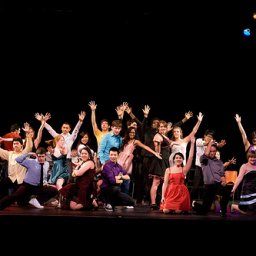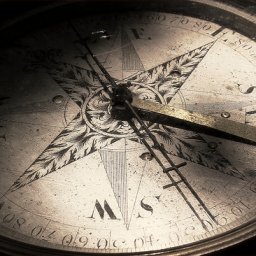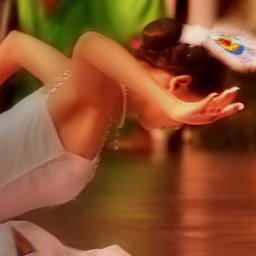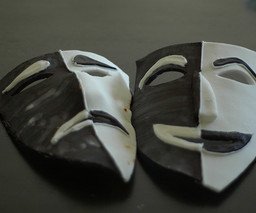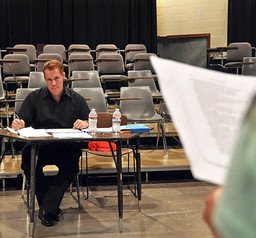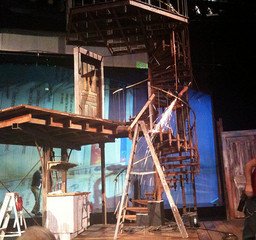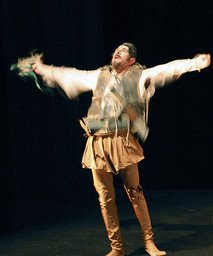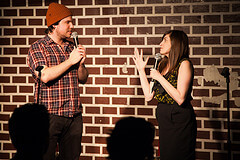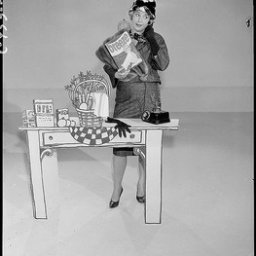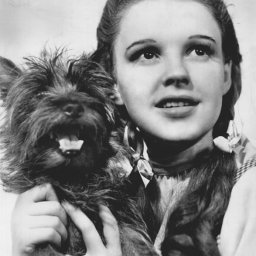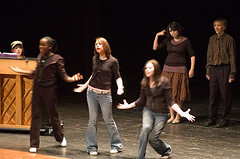 With a performance’s success relying on so many little things going right, it’s no surprise that those in theatre are, as a whole, a superstitious lot. But in addition to the traditional superstitions, there are a few that are unique to the theatre environment. Here are six of the more common superstitions you’re likely to run across in a theatre.
With a performance’s success relying on so many little things going right, it’s no surprise that those in theatre are, as a whole, a superstitious lot. But in addition to the traditional superstitions, there are a few that are unique to the theatre environment. Here are six of the more common superstitions you’re likely to run across in a theatre.
1. “Break a Leg”
Nearly everyone, whether an actor or not, is familiar with the tradition of telling someone who is about to perform to “break a leg”. But where did this tradition come from? There are a few theories floating around, but a common thought is that it’s that telling someone to break a leg is the exact opposite of saying “good luck” – which is also banned in theatres due to superstition.
Another popular explanation for this saying is that it refers to bending your knee, or taking a bow; in other words, you’re wishing someone a performance so successful that after the play they will bow to the audience in response to their cheers and applause.
2. The Scottish Play
William Shakespeare may be one of the best-known playwrights of all time, but theatre tradition forbids even speaking the name of one of his plays within the walls of a theatre. Superstition claims that uttering the word “Macbeth” inside a theatre will bring a curse of bad luck. The origins of the superstition are unclear, though many attribute it to the role of witches and witchcraft in the play.
To avoid using the name, the play is often referred to as “The Scottish Play”. If someone does say the name, many theatres require a ritual be performed by the offender to undo the curse; a popular variation includes leaving the theatre, turning in three circles, cursing, spitting on the ground, and knocking to be let back inside.
3. Leave a Light on for Ghosts…
Nearly every theatre has a single light that is left on at all times, generally referred to as a “ghost light”. While the main reason for this light is safety, so that no one is ever caught in a pitch-black theatre, superstition holds that this light is also there to ward off evil spirits or mischievous ghosts.
4. …And Let Them Act!
Many would say that the tradition of closing theatres on Mondays is in place to give actors a day off after a long weekend of performances. However, the superstitious also claim it’s so that the ghosts that haunt the theatre have a night to put on their own performances. Otherwise, the stage-loving spirits might take out their frustrations by interrupting the performances of the living cast and crew.
5. Whistling
While humming or singing a song from the play is acceptable, don’t get caught whistling it – in fact, whistling at all inside a theatre is strictly prohibited, and regarded as bad luck. This superstition likely evolved from the early signaling system used by backstage crewmembers to indicate a scenery change or moving of props; as whistling was used to communicate an important message, unnecessary whistling would be confusing and possibly dangerous.
6. Peacock Feathers
Myths connect the pattern on peacock feathers to evil, all-seeing eyes; as such, peacock feathers have long been condemned by the superstitious as unlucky. Theatre superstition dictates that peacock feathers on stage at any time, either as scenery or part of a costume, will bring bad luck upon the entire performance.
Still Have More Questions?
KD Conservatory has acting, musical theatre, and film production programs to help prepare students for careers in the entertainment industry. Contact us with any of your questions, or check us out on Facebook for ongoing updates and information!



